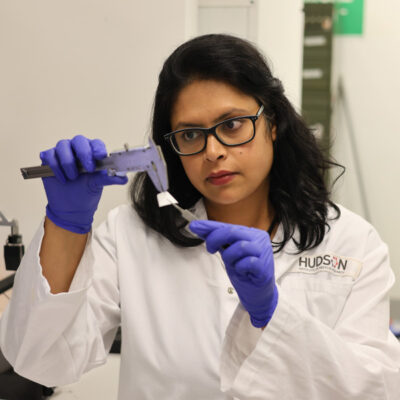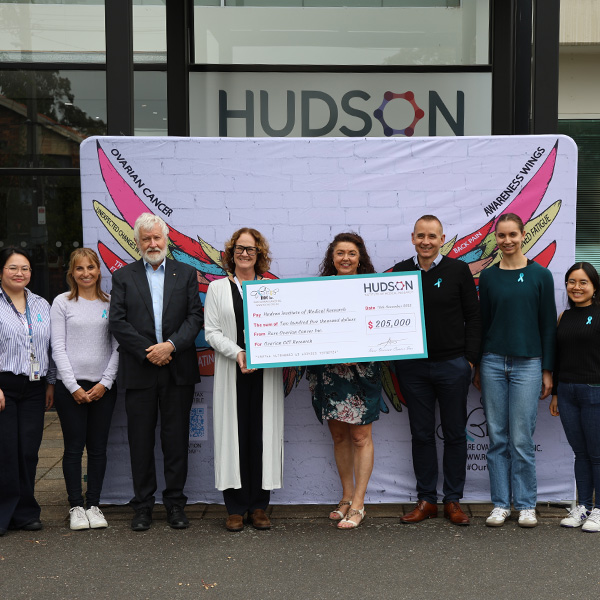Engineering a better POP treatment option
By Rob Clancy, staff writer
People living with pelvic organ prolapse (POP) have had a limited number of treatments available to them over the years, so a new POP treatment option can be a cause for excitement.

One such development is taking place here in Melbourne thanks to a collaboration between Monash University’s Department of Obstetrics and Gynaecology and Hudson Institute.
Smart technology offers POP treatment option
PhD candidate Ritesh Warty is combining smart technology and bioengineering to develop what he calls a “smart pessary”, and it’s recently attracted the interest of two significant research funding bodies – the Neobionica Technology Voucher Program and the Norman Beischer Medical Research Foundation.
“The device that will be trialled as part of this grant consists of a pessary with an electrical stimulator unit that will trigger safe neuromuscular contractions in pelvic floor muscles of women with POP,” Ritesh said.
Strengthen weakened muscles
Professor Caroline Gargett is a consultant on this project and says: “The device is smart because not only will it assist supporting prolapsed pelvic organs, but also in strengthening weakened pelvic floor muscles.”
The device will stimulate key muscles to help improve muscle tone, offering a new POP treatment option.
Ritesh added: “From this study, we hope to determine if a therapeutic effect is also possible and lay the foundations for a novel intravaginal smart prosthetic device in the near future.”
About Hudson Institute
Hudson Institute’ s research programs deliver in three areas of medical need – inflammation, cancer, women’s and newborn health. More
Hudson News
Get the inside view on discoveries and patient stories
“Thank you Hudson Institute researchers. Your work brings such hope to all women with ovarian cancer knowing that potentially women in the future won't have to go through what we have!”





